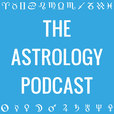
Summary: <br> In episode 101 Kenneth Miller joins me to talk about the concept of the Age of Aquarius, where it came from, what it means, and what some of the issues are surrounding it.<br> This is an episode that Kenneth and I have been wanting to do for a while now, and it ties in nicely with our previous discussion on the <a href="http://theastrologypodcast.com/2016/01/03/zodiac-debate-tropical-vs-sidereal/" target="_blank">tropical and sidereal zodiacs</a>.<br> Below you will find the show notes, followed by links to download or stream the recording of this episode of the podcast.<br> Giveaway Prizes for March<br> At the top of the show we briefly talk about the two giveaway prizes for March:<br> <br> * A free pass to the upcoming Organization for Professional Astrology retreat, which will take place October 19-22, 2017 at the beautiful Zion National Park, in Utah.<br> * A signed copy of my new book, Hellenistic Astrology: The Study of Fate and Fortune.<br> <br> For more information about the giveaway and how to enter see the <a href="http://theastrologypodcast.com/2017/03/06/astrology-prize-giveaway-march-2017/" target="_blank">March description page</a>.<br> Episode Outline<br> <br> * We start with news and announcements at the top of the show, which is over by 4:50.<br> * The theory of Astrological Ages.<br> <br> * Roughly 2000 year periods ruled by each of the zodiacal signs<br> * The general idea is that we have been in Pisces for about 2000 years, and Aquarius is starting.<br> <br> <br> * The idea became popular in the late 19th century<br> * Became synonymous with New Age and New Age Movement.<br> * The idea of astrological Ages wasn’t really used prior to the 19th century, even though precession has been known about since the time of Hipparchus.<br> * It was appropriated and promoted by the Theosophical Society for religious purposes.<br> <br> * Said to be evidence of the dawn of a new age<br> * Partially used to justify idealized future that they envisioned.<br> * Problem is that the conceptualization of Aquarius changed in the process.<br> * Positive ideas projected onto it that didn’t exist before.<br> * Alan Leo, Marc Edmund Jones, and Dane Rudhyar were all Theosophists.<br> <br> <br> * Based on the phenomenon known as precession.<br> <br> * Earth’s wobble causes equinoxes and solstices to move slowly against stars<br> * Tropical and sidereal zodiacs slowly move out of alignment<br> * 1 degree every 72 years or so.<br> * Astrological Ages is based on vernal point moving through sidereal signs<br> * Effectively means that sidereal signs are being ascribed western significations, even though most of the astrologers who use the technique are tropicalists.<br> <br> <br> * There are problems with defining when one age ends and another begins.<br> <br> * Connected to the issue of where to start the sidereal zodiac.<br> * The ayanamsha you use can vary by a few degrees. 1 degree = 72 years<br> * With a normal sidereal zodiac it would start at a relatively certain time.<br> * In the 1970s Hand suggested using the constellations and fixed stars.<br> <br> * Originally proposed by Jung<br> * In this approach Pisces and Aquarius overlap a bit.<br> <br> <br> <br> <br> * Further reading:<br> <br> * Nicholas Campion, <a href="https://www.astrologers.com/product-page?product_id=1673" target="_blank" rel="nofollow">Astrology, History, and Apocalypse</a><br> * Nicholas Campion, <a href="http://amzn.to/2nJyLxM" target="_blank" rel="nofollow">Astrology and Popular Religion in the Modern West</a><br> * Robert Hand, <a href="http://amzn.to/2nd3yjI" target="_blank" rel="nofollow">Essays on Astrology</a><br> <br> <br> <br> Listen to This Episode<br> You can either play this episode of the podcast directly from the website or download it as an MP3 to your computer by using the buttons below:<br>
